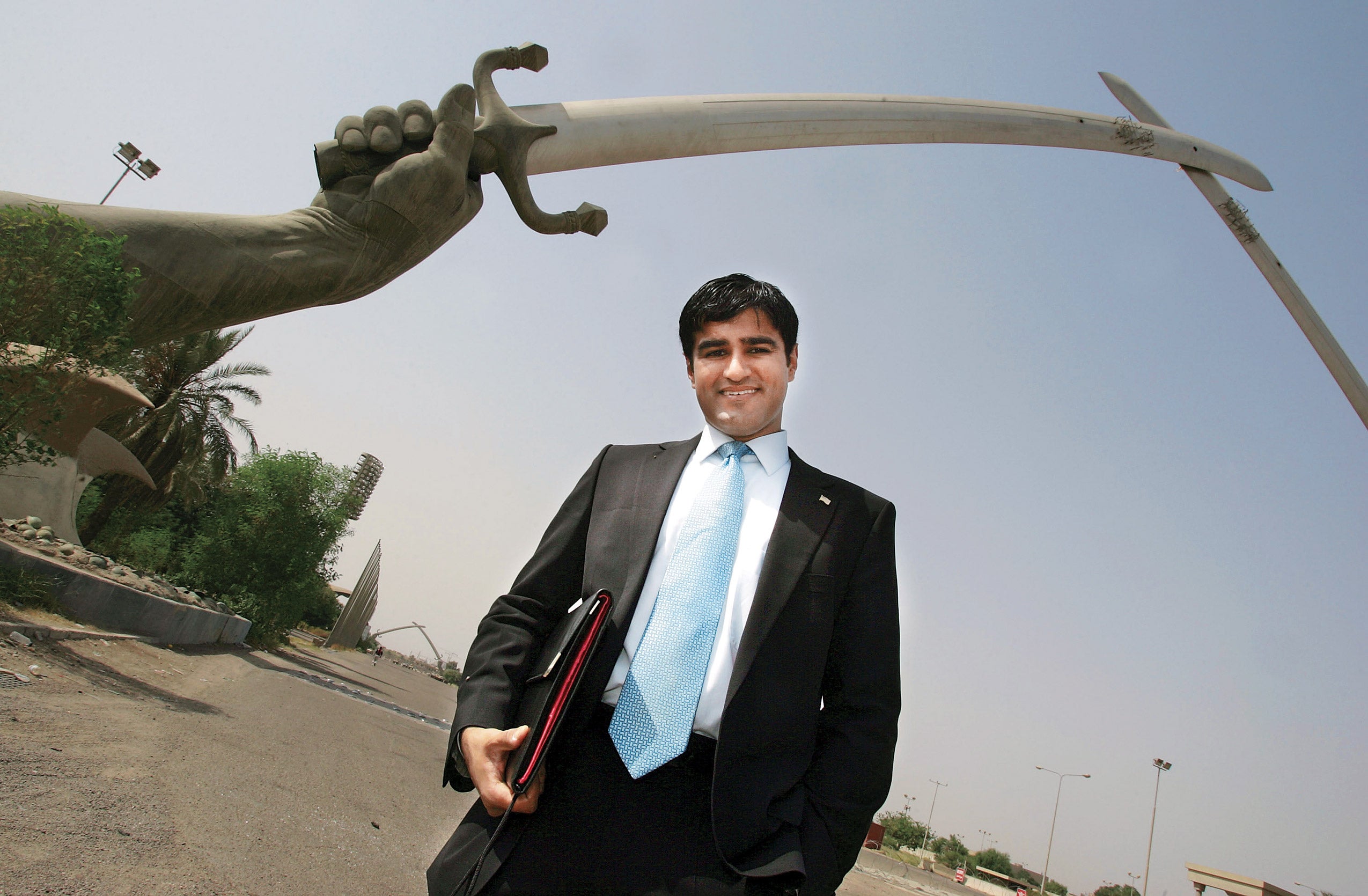Jay Munir ’01 set out to be a litigator. So how did he end up in Iraq?
Like so many of his classmates, when Jay Munir graduated from Harvard Law School in June 2001, he was headed for a job as a litigator at a large firm. If someone had asked him the standard interview question, Where do you see yourself in five years? his answer certainly would not have been, “Anbar Province, Iraq.”
But this past year, that’s where he was posted.
Munir did become a litigation associate—first at Kirkland & Ellis in Washington, D.C., and later at Greenberg Traurig in Miami—and he clerked for a federal district judge in Florida along the way. But the logical progression of that career trajectory was thwarted even before he started the first of those jobs, derailed by the terrorist attacks of 9/11, just three months after he finished law school.
“After September 11, I was determined to find a job that allowed me to serve America in places where I felt I could contribute the most,” said Munir, who grew up in Grand Rapids, Mich., and graduated from Yale University with a B.A. in political science. “My parents immigrated to the United States from Pakistan. They have always encouraged my sister and me to find ways to give back to the United States and the American people who have given us so much.”
Fluent in French, Arabic, and Urdu, Munir joined the Foreign Service in 2004—aided by a Heyman Fellowship—and was soon posted to Jeddah, Saudi Arabia. The contrast between his new life and his law firm days became frightfully apparent just two weeks after his arrival, when five staff members were killed in a terrorist attack on the consulate. After that, he said, “confronting terrorism and extremism became a deeply personal issue for me.”
After completing his tour in Saudi Arabia in early 2006, Munir joined the political section of the U.S. Embassy in Paris, heading up its outreach to French Muslims. But when he learned that the State Department needed Arabic-speaking volunteers with regional experience for the mission in Iraq, he knew he had to sign up: “I loved my job in Paris, but I wanted to contribute where the need was the greatest.”
Munir arrived in Baghdad in 2006 and was assigned to the U.S. Embassy’s Provincial Reconstruction Team for Anbar Province, a joint civilian-military group that supports the provincial and local governments, including Anbar’s governor.
In that role, he has organized conferences to strengthen ties between provincial and local officials, and he has secured resources for the province from the central government in Baghdad. Recently, he helped council members who had fled the province under insurgents’ threats to return to the provincial capital of Ramadi, arranging for the Marines to transport them there for meetings aimed at restoring the provincial government. His job also entails sharing the American viewpoint with Anbari officials and ordinary citizens, he says.
“Our goals are to bolster moderates, promote reconciliation and foster economic development across Iraq,” Munir said. Legal questions—particularly as they relate to the development of the rule of law or the law-making process—come up frequently, and his legal training serves him well, he adds.
Asked for a progress report, he said military successes in Anbar over the past year have enabled civilians from the State Department and other agencies “to step in and assist with political and economic development in the province.”
Munir’s yearlong tour in Iraq ended just before the new year. When an interviewer asked him recently where he sees himself in five years, he didn’t offer a prediction, but he rattled off the commitments that will fill up most of his life until then: “I have assignments with the State Department in Jordan, Tunisia and Syria over the next four years.”
